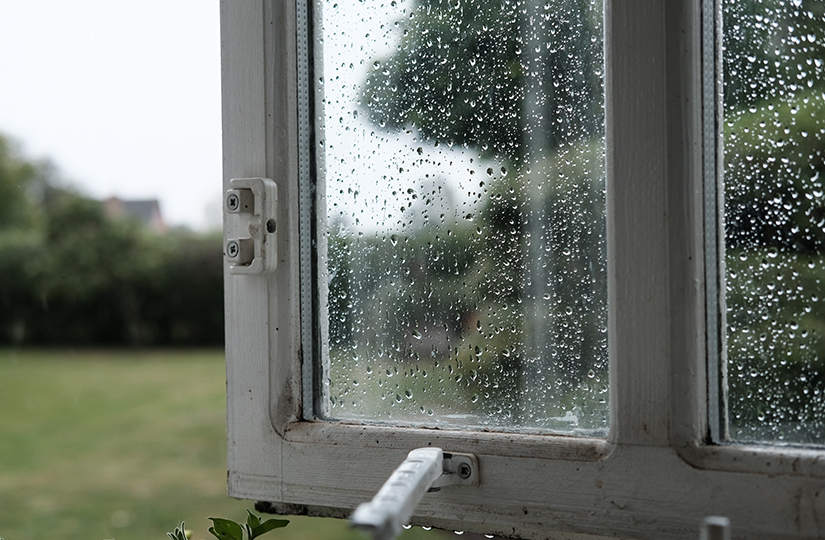MEES and EPC rules – three common questions answered
Three years after the introduction of Minimum Energy Efficiency Standards (MEES) for new residential tenancies and one year since the legislation was extended for all existing residential tenancies, there remains confusion among landlords about how the regulations should be applied in different situations.
On 1 April 2018, MEES introduced the requirement for residential landlords to ensure any new tenancies had an Energy Performance Certificates (EPC) with a minimum rating of an E. Since 1 April 2020 the legislation was extended to cover all existing relevant residential tenancies.
The standards prevent the letting of residential property with an EPC below an E grade and apply to all domestic private rented properties that are:
- let on specific types of tenancy agreement
- legally required to have an EPC
However, the guidance is complex and rural landlords frequently have questions about how property rented on an agricultural tenancy should be treated and whether listed properties fall within MEES requirements.
Here are three scenarios that come up regularly:
1. An expired EPC[i]
A property has an EPC rating of an F which was first commissioned in 2009. The tenancy commenced in 2014 for an initial term of 12 months and is now periodic with the same tenants occupying the property during this time. The EPC expired in 2019, but there have been no trigger points requiring a new EPC, so does the landlord now need to obtain a new EPC and ensure the property complies with MEES?
If the tenants have remained the same since 2014 and the EPC expired in 2019, the landlord would not need to get a new EPC commissioned for the property. As no EPC is legally required there is no F rating and so compliance with MEES is not a requirement until a new trigger point is reached e.g. marketing the property to let, a new tenancy agreement to the same tenant or certain modification works to the property.
However, if the property has an expired EPC and the landlord intends to serve a valid section 21 Notice the landlord will need to commission a new EPC and provide this to the tenant prior to the Section 21 notice being served. If the property is still let and has a new EPC, the landlord must then comply with MEES.
Following the government’s consultation earlier this year, and the likelihood that by 2025 let domestic properties will have to have an EPC rating of at least a C, it is anticipated that the rules will be changed so all let domestic properties will be required to have a valid EPC, even if the EPC has expired and there has been no trigger points requiring a new EPC.
2. Farmhouse under an AHA or FBT tenancy[ii]
A landlord lets a farm on a Farm Business Tenancy or Agricultural Holdings Act agreement. The farm includes a principle farmhouse where the tenant lives, will the farmhouse be covered by the regulations?
FBT or AHA tenancies are not specified in the MEES regulations defining domestic properties. Whilst farmhouses and cottages let on FBT or AHA tenancies require an EPC if they were let post-October 2008, they are not required to comply with the domestic or non-domestic MEES regulations.
However, if a farm tenant of an FBT or AHA tenancy sublets a farm cottage to a third party on an Assured Shorthold Tenancy they must comply with the regulations. Equally, if the tenant sublets a cottage to a farmworker on an assured agricultural occupancy then this falls under the regulations.
3. A listed property[iii]
A landlord lets a property which is listed. Does the property require an EPC and does it fall within the MEES requirements?
The position for listed buildings and those in conservation areas is that the government requires all such buildings to have an EPC if they are let post 1 October 2008.[iv] However, this does not change the government’s position regarding consent for energy efficiency improvements. Only works which have or do not require listed building consent can be carried out. If the EPC report recommended work such as adding double glazing, new doors, external wall insulation then this is likely to result in unacceptable changes to the building and should not be carried out.
The suggested plan of action should be considered if you are looking to let a listed building:
- Commission an EPC to be completed at the property – if the property is compliant then no improvement works are necessary and you can continue to let the property.
- If the property has an F or G rating, then you will need to review the improvement works that could be implemented without causing unnecessary changes to the building. These could include installing energy efficient light bulbs and draft excluding doors.
- Once these changes have been implemented the surveyor will need to update the report to reflect these changes and to understand if the property has now achieved an E rating.
- If the property remains below standard, then you should consider registering the relevant exemption before letting the property. The ‘All relevant improvements made’ exemption could be used here as the property is still below an E despite the landlord carrying out all the works that are possible for the listed building.
Landlords will need to take a view as to whether the works are unacceptable and will alter the characteristic of the property. If there is any doubt as to whether works would unacceptably alter the character or appearance of a building, landlords may wish to seek advice from their local authority.
Strutt & Parker’s land management team can provide
guidance on a wide range of different scenarios. If you would like a review of
your let residential portfolio, to check that you are complying with MEES
regulations, then please contact Alice Robinson.
[i] [i]Source: Page 24, The Domestic Private Rented Property Minimum Standard Guidance v. April 2020
[ii] Source: Page 4, CLA Complying with regulations to improve the energy efficiency of domestic private rent property (MEES) regulations (England and Wales) v. January 2019
[iii] Source: Page 22: The Domestic Private Rented Property Minimum Standard Guidance v. April 2020
Page 3, CAAV England & Wales: Consultation on improving the energy performance of privately rented homes.
[iv] Page 3, CAAV England & Wales: Consultation on improving the energy performance of privately rented homes.






